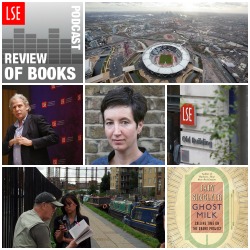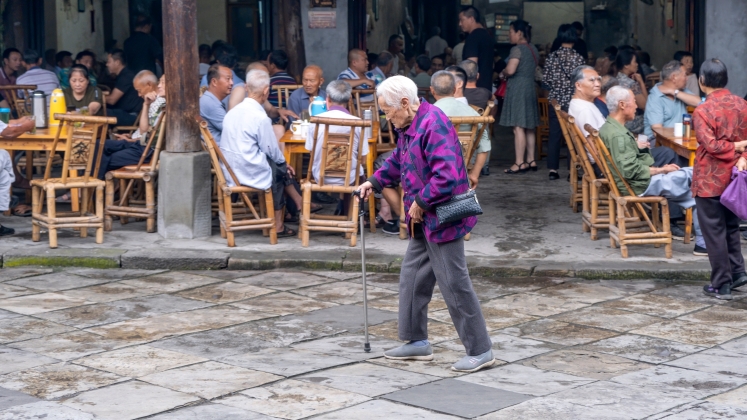As London 2012 gets under way, we bring together a selection of books on Olympic history, risk and legacy, and there’s also something for the Olympic pessimists and optimists. Read up on some of the key sociological, architectural and economic ideas behind the Olympic Games.
……………………………………………………………………………………………………………………………….
 Best read for Olympic pessimists: Ground Control: Fear and Happiness in the Twenty-First Century by Anna Minton
Best read for Olympic pessimists: Ground Control: Fear and Happiness in the Twenty-First Century by Anna Minton
In 2012, as London is re-made as a kind of Beijing-on-Thames for the Olympic Games, we see the timely issue of a revised version of Anna Minton’s book, Ground Control: Fear and Happiness in the Twenty-First Century. A new preface begins with the Olympic Park development, from compulsory purchase and enclosure, to the Qatari buy-out and drone surveillance (the roof-top missiles clearly came too late for this edition). Minton re-joins the original 2010 text just a few miles away – in London’s Docklands, still the best example of “the architecture of extreme capitalism” the country has on offer. Read our review…
……………………………………………………………………………………………………………………………….
 Best read for Olympic optimists: Why the Olympics Aren’t Good For Us, and How They Can Be, by Mark Perryman
Best read for Olympic optimists: Why the Olympics Aren’t Good For Us, and How They Can Be, by Mark Perryman
On the eve of the opening of the 30th Olympiad in London this summer, sports activist and writer Mark Perryman presents an imaginative blueprint for how they could be improved. His proposals include: Extending the games from a single host city to an entire country, or even group of countries; using existing stadia with greater spectator capacity than many of the purpose built facilities; expanding competitions held outside of stadia altogether, with more road, cross-country and open water races; increasing the number of events based on sports like running and boxing where international participation is widespread, and reducing the number of those, such as rowing, fencing and equestrianism, where few countries have the facilities to compete; and shifting the onus of the games from corporate sponsorship to the involvement of community and volunteer groups. Read our review…
……………………………………………………………………………………………………………………………….
 Best read for policy nerds: Cities, Cultural Policy and Governance, edited by Helmut Anheier, Yudhishthir Raj Isar
Best read for policy nerds: Cities, Cultural Policy and Governance, edited by Helmut Anheier, Yudhishthir Raj Isar
The preparation for the Olympic Games in London and its legacy have brought into question the efficacy of top-down marketing strategies and private ownership. Rebecca Litchfield finds the essays in Cities, Cultural Policy and Governance a salient reflection on issues common to London and other cities the world over experiencing a new “glocal” culture, which has come to dominate cultural policy decisions. Read our review…
……………………………………………………………………………………………………………………………….
 Best read for history buffs: Sport Italia: the Italian Love Affair With Sport, by Simon Martin
Best read for history buffs: Sport Italia: the Italian Love Affair With Sport, by Simon Martin
What is the relationship between sport and the state? Richard Holt finds that Simon Martin’s history of sport and society in Italy is an engaging, enlightening and scholarly addition to Italian history, and will be of particular value to those working in the history of sport. The author discusses how monuments to the Mussolini regime have been preserved in the grandiose surroundings to the Olympic stadium in Italy – now home to Lazio and Roma – and remain to this day. Read our review…
……………………………………………………………………………………………………………………………….
Best read for control freaks: Olympic Risks by Will Jennings
The task of governing the Olympic Games and the Olympic movement now takes place in an age in which states and societies are increasingly organized in response to risk. At the heart of the risk management in organising the Olympics is the tension between the inherent riskiness of mega-events, which is attributable to their scale and complexities, combined with immense societal, political and organisational pressures for the management of risk. Over time, too, staging the Olympics has become more complex, and riskier, as a consequence of its growing scale and commercial success. Review coming soon…
……………………………………………………………………………………………………………………………….
Podcast: London 2012 Olympics: What happens when global meets local?
 Download MP3
Download MP3  Listen + Subscribe via iTunes
Listen + Subscribe via iTunes  Webfeed
Webfeed
[jwplayer file=”http://media.rawvoice.com/lse_lsereviewofbooksblog/richmedia.lse.ac.uk/lsereviewofbooksblog/20120727_LSERB_Podcast_4_Olympics.mp3″]

Architectural Advisor to the 2012 Olympic Games and LSE Cities Professor Ricky Burdett talks about the primacy of Olympic legacy and the regeneration of East London. Author of Ghost Milk: Calling Time on the Grand Project, Iain Sinclair, takes us on a tour of London Fields in Hackney, a host borough for the Olympic Games, to talk us through what he sees as a negative acceleration of change brought about by the Olympic project. Dr. Suzi Hall, urban ethnographer and lecturer from LSE Cities, leafs through the beautiful architecture books that inspired her interests in the design of cities and urban multiculture.
Presented by Amy Mollett. Other Contributors: Cheryl Brumley, Ricky Burdett, Iain Sinclair, Suzi Hall. Produced by Cheryl Brumley. Music and sound came courtesy of the following users at freesound.org: bebeto (Intro music); Harri (Hypno1 and Hypno5) ERH (Swell pad); Tube mash-up: acclivity (mind the gap and stand clear),wim (London underground train arriving 6 and 13), Jerry F (tube train interior), ERH (underground announcement). Published 27th July 2012.
……………………………………………………………………………………………………………………………….






